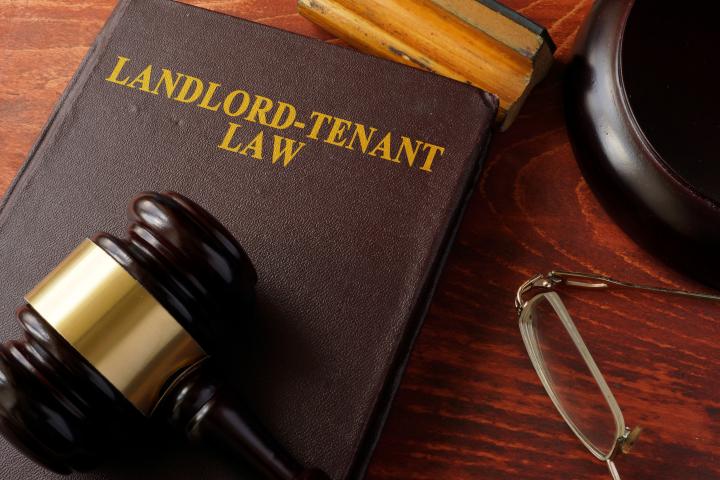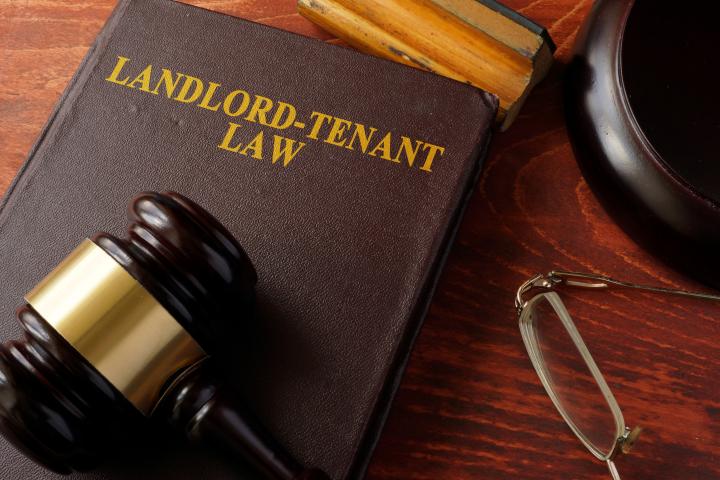Search by alphabetical topics All ABCDEFGHIJKLMNOPQRSTUVWXYZ
-
 Accelerated Possession Procedure
Accelerated Possession ProcedureThis can be used to claim possession of a residential property without going to Court. It is only applicable following service of a Section 21 Notice. It cannot be used if it is claimed that there has been a breach of the tenancy agreement by the tenant. The case must also meet the requirements in Part 55.12 of the Civil Procedure Rules.
Civil Procedure Rules (CPR) – found at https://www.justice.gov.uk
These are the rules of civil procedure used by the Court of Appeal, High Court of Justice, and County Courts in England and Wales.
- CPR 55.12 Requirements
- An assured short hold tenancy was granted after 15/1/1989,
- Its only purpose is to recover possession.
- The tenancy did not automatically follow an Assured tenancy which was not an Assured short hold tenancy.
- The tenancy is subject to a written agreement or follows a tenancy where there was a written tenancy.
- A Section 21(1)(b) or Section 21(4)(a)Notice has been served.
If the Accelerated Possession Procedure has been used a copy of the Claim form and a Response pack will be issued to the tenant from the local County Court. If a defence is filed within 14 days by the tenant the judge will decide if a hearing should be scheduled for a Court hearing. If no defence can be found by the judge then a possession order will be made without a Court hearing.
Which Court?
Any claim for possession will be commenced is the County Court which is local to the occupied property. Local court locations can be found at https//:www.courttribunalfinder.service.gov.uk.
-
 Accelerated Possession Procedure
Accelerated Possession ProcedureThis can be used to claim possession of a residential property without going to Court. It is only applicable following service of a Section 21 Notice. It cannot be used if it is claimed that there has been a breach of the tenancy agreement by the tenant. The case must also meet the requirements in Part 55.12 of the Civil Procedure Rules.
-
 Adjournment
AdjournmentThe judge can adjourn a case if he/she is unable to make a decision on the case. The adjournment can be for a specified period or indefinitely.
-
 Appeal Procedure
Appeal Procedure- Any appeal against a Housing Benefit decision will be assessed by an independent tribunal, called the First-Tier Tribunal at the HM Courts and Tribunal s Service. Upon receipt of the appeal the tenant will receive a form requesting further information on how they want the case to proceed, if there are any special requirements that need to be made and if the appeal should be dealt with as an oral or paper hearing. The form should be returned within 14 days.
- A set date and time will be given for an oral hearing at one of First-Tier Tribunal hearing Courts where the tenant will be required to present their case. The tenant will be asked questions and is allowed to present witness statements and bring witnesses so that all evidence is heard. The result of the hearing will be given to the tenant on the day.
- A paper hearing means that all evidence will considered based on the papers submitted by the tenant. The tenant will be advised of the decision by post.
- Further details concerning the reasons for the decision and other findings by the tribunal can be requested as a statement of reasons within one month of the date of the decision.
- Any disagreement with the decision by the tenant can only be on a point of law i.e. an error made in the interpretation of the law. Any dispute would be heard by the Upper Tribunal.
-
 Application to set aside or vary an order for possession
Application to set aside or vary an order for possessionAn application for set aside or to vary a possession order needs to be made within 14 days of the order being served.
The tenant will be required to satisfy the following
- Provide good reason for not attending the trial.
- Has acted in good time since being informed of the Order.
- Has reasonable prospect of success at the trial.
- If a tenant’s application is successful the order will either be downgraded to a lesser order or set aside to put the tenant back to the position has the order not been made. If a set aside is made then a new hearing will be listed for a new case to be heard.
-
 Application to set aside or vary an order for possession – CPR
Application to set aside or vary an order for possession – CPRAn application for set aside or to vary a possession order needs to be made within 14 days of the order being served.
The tenant will be required to satisfy the following:
Provide good reason for not attending the trial.
Has acted in good time since being informed of the Order.
Has reasonable prospect of success at the trial.
If a tenants application is successful the order will either be downgraded to a lesser order or set aside to put the tenant back to the position has the order not been made. If a set aside is made then a new hearing will be listed for a new case to be heard.
-
 Assured Shorthold Tenancy
Assured Shorthold Tenancy- If created after 28th February 1997 by a private landlord a tenancy will automatically be an assured shorthold tenancy.
Exceptions (tenants should seek further advice as to their right from a Solicitor) to this rule set out in Schedule 2A Housing Act 1988 are as follows:
- If a notice is served by a landlord to a tenant stating that the tenancy is not an assured shorthold one.
- The tenancy agreement details that the tenancy is not an assured shorthold one.
- As assured tenancy was previously a secure tenancy.
- Any tenancy that replaced an assured tenancy after 28 February 1997 will only be an assured shorthold one if the landlord serves a notice on the tenant stating this fact.
- Assured agricultural occupancies.
- An assured tenancy arising from Schedule 10 to the Local Government and Housing Act 1989.
-
 Assured Shorthold Tenants
Assured Shorthold Tenants- Most landlords use a letting agent to manage their property to avoid the stress which comes with renting a property. Others chose to manage their property without the help or service of a letting agent to avoid paying high letting agent fees.
- Letting agents are mostly located on main high streets. Their role includes letting properties to tenants.
Role of Letting Agents
- To market properties to potential tenants on the landlord's behalf.
- To negotiate the terms of the tenancy agreement and rental value of the property.
- To instigate legal proceedings to obtain possession of the property on the landlord’s behalf.
- To manage the property when requested by the landlord; management can include collection of rent, repairs, disrepair, inspections of gas, boilers, electricity and annual safety checks on items in the rental property.
-
 Assured Shorthold Tenants
Assured Shorthold Tenants- The heating system is operating correctly.
- Check that all the windows open and shut properly and can be secured.
- Check for any signs of damp or wet walls. Remember damp also smells.
- Signs of leakage e.g. staining to walls, floors and ceilings.
- Any extractor fans operate correctly.
- All kitchen units open and close correctly.
- Check that any supplied white goods work (refrigerators, cookers etc).
- Find out who is responsible for the maintenance of white goods.
- Visit the property during different periods of the day to check for noise for example.
- Smoke alarms are installed and operating.
- Evidence of pests, for example mice droppings.
The prospective tenant is not limited to just checking the items above. He/she can check every inch of the property if they feel it is necessary. It will be useful for tenants to take notes and inform the landlord/letting agent of any concerns on areas that need repairs or items which may need to be replaced before the start of the tenancy, and before signing a tenancy agreement. It is vital to inform the landlord or letting agent so that he/she will not be liable for any repairs or damage to the property before the start of the tenancy. It is important that the tenant checks the property from the outset to ensure that they are satisfied with the overall condition of the property.
The tenant should read the contract in full and ensure that they understand and are happy with the terms of the contract as they will be bound by these terms.
-
 Assured Shorthold Tenants
Assured Shorthold TenantsLetting agents will charge fees for setting up a tenancy. These include administration fees, holding fees, credit check fees and check-in fees. Letting agent fees can vary from £70 to £1000+.
Some letting agents do charge non-refundable fees in certain instances. So, if the letting is cancelled the tenant will not be reimbursed.
As of the 1st of November 2013, letting agents are required by the advertising standard agency to ensure that non-optional fees are displayed in adverts alongside rental prices.
If additional fees can be calculated in advance, these will be included with the quoted asking rent. If non-optional fees cannot be calculated in advance; because they depend on individual circumstances, then all marketed property must clearly state the nature of these and how they will be calculated.
Search by alphabetical topics
All
ABCDEFGHIJKLMNOPQRSTUVWXYZ



